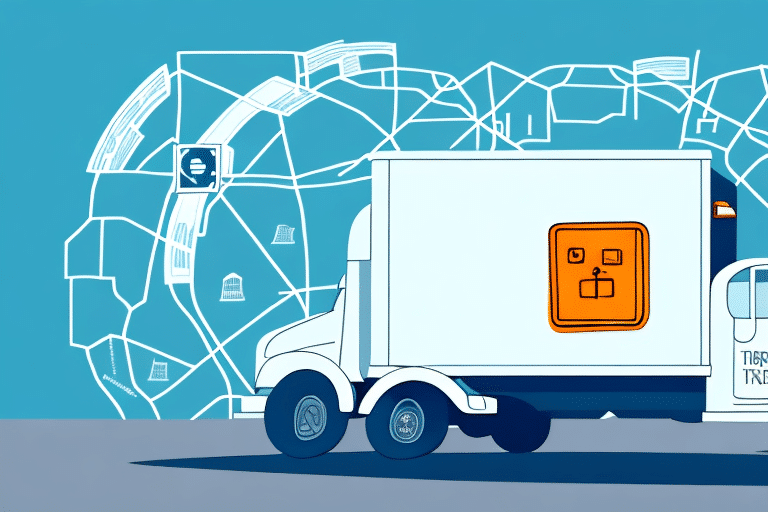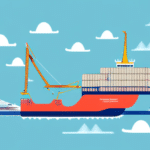Everything You Need to Know About Shipment Tracking Systems for Your Business
In today's fast-paced business landscape, managing logistics and deliveries can be a daunting task. With ever-increasing customer demands for fast and prompt deliveries, businesses need shipment tracking systems that enable real-time tracking and monitoring of their shipments. In this article, we will explore the different aspects of shipment tracking systems and how they can help your business improve its efficiency and customer satisfaction.
Understanding Shipment Tracking Systems
Shipment tracking systems are software solutions that enable businesses to track and monitor the movement of their shipments from the point of dispatch to the point of delivery. These systems use various technologies such as GPS, barcodes, and RFID to track the location, status, and condition of packages in real-time. The data collected by these systems can be analyzed to optimize delivery schedules and routes, reduce delivery errors, and improve the overall efficiency of your logistics operations.
The Benefits of Using Shipment Tracking Systems
- Real-Time Tracking: Provides up-to-the-minute location data, enhancing transparency and accountability.
- Improved Customer Satisfaction: Keeps customers informed about their package status, reducing inquiry calls and enhancing trust.
- Optimized Routes: Analyzes data to determine the most efficient delivery routes, saving time and reducing fuel costs.
- Enhanced Inventory Management: Monitors inventory levels and movement, reducing stockouts and overstock situations.
- Condition Monitoring: Tracks the condition of shipments, ensuring that goods are transported safely and without damage.
Implementing a shipment tracking system in your business offers numerous benefits that can help streamline operations and enhance customer experience. Firstly, real-time tracking and monitoring of your shipments allow you to keep your customers informed about the status of their packages. This transparency can significantly improve customer satisfaction and reduce support queries related to package status.
Secondly, shipment tracking systems enable you to optimize your delivery schedules and routes, thereby reducing delivery times and operational costs. By analyzing the collected data, businesses can identify the most efficient paths for deliveries, minimize fuel consumption, and avoid traffic congestion.
Lastly, these systems help in tracking the condition of your packages, enabling you to identify and address any issues that may arise during transit. This proactive approach ensures that customers receive their orders in optimal condition, fostering trust and reliability.
The Inner Workings of Shipment Tracking Systems
Shipment tracking systems operate by utilizing a combination of technologies to capture and transmit data about the location, status, and condition of packages. The primary technologies include GPS, barcodes, and RFID, each playing a crucial role in the tracking process.
How Shipment Tracking Systems Use GPS Technology
GPS technology is one of the most prevalent technologies used in shipment tracking systems. By installing GPS-enabled devices on shipments, businesses can monitor the exact location of their packages in real-time. These devices transmit location data to a central system, which processes the information and provides real-time updates. This continuous monitoring ensures transparency and allows businesses to make informed decisions regarding their logistics operations.
The Role of Barcodes in Shipment Tracking Systems
Barcodes are extensively used in shipment tracking to identify and track packages throughout the logistics network. Each package is assigned a unique barcode, which is scanned at various checkpoints using barcode scanners. This scanning process updates the central system with the package's current location and status, enabling businesses to maintain accurate tracking records and streamline their inventory management processes.
The Advantages of RFID Technology in Shipment Tracking Systems
RFID technology offers a more automated and efficient method of tracking shipments compared to traditional barcodes. RFID tags attached to packages transmit data to RFID readers placed strategically throughout the supply chain. This allows for automatic identification and tracking of packages without the need for manual scanning, reducing human error and increasing the accuracy of tracking information.
Choosing the Right Shipment Tracking System for Your Business
Selecting the appropriate shipment tracking system is crucial for optimizing your logistics operations. Several factors must be considered to ensure that the system aligns with your business needs and operational requirements.
Factors to Consider When Selecting a Shipment Tracking System
- Business Size and Shipment Volume: Assess the scale of your operations to determine a system that can handle your shipment volume efficiently.
- Cost: Evaluate the pricing structures of different systems to find one that offers the best value within your budget.
- Real-Time Tracking Capabilities: Ensure the system provides accurate and timely tracking information.
- Integration with Existing Systems: The tracking system should seamlessly integrate with your current logistics and inventory management software.
- Reporting and Analytics: Look for systems that offer comprehensive reports and analytics to help you make data-driven decisions.
- Customer Support: Reliable customer support is essential for addressing any issues or queries that may arise.
- Security Features: Ensure the system has robust security measures to protect your shipment data.
Top Shipment Tracking Systems in the Market
The market offers a variety of shipment tracking systems, each with unique features and pricing models. Some of the leading systems include:
- FedEx Tracking: Offers comprehensive tracking features with real-time updates and detailed analytics.
- UPS Tracking: Provides reliable tracking services with integration capabilities for various business needs.
- DHL Tracking: Known for its global tracking network and efficient delivery monitoring.
- USPS Tracking: Offers affordable tracking solutions suitable for businesses of all sizes.
Benefits of Using a Shipment Tracking System
- Enhanced Customer Service: Real-time updates improve communication with customers.
- Operational Efficiency: Streamlines logistics processes and reduces manual intervention.
- Cost Reduction: Minimizes losses from lost or damaged shipments and optimizes route planning.
- Data-Driven Insights: Provides valuable data for analyzing and improving logistics strategies.
Implementing a shipment tracking system can provide numerous benefits for your business. Firstly, it can help you improve your customer service by providing real-time updates on the status of their shipments. This can help you build trust and loyalty with your customers. Additionally, it can help you identify and address any issues or delays in your logistics operations, allowing you to make improvements and optimize your processes. Finally, it can help you reduce costs by minimizing the risk of lost or damaged shipments and by providing data and analytics that can help you make informed decisions about your logistics operations.
How Shipment Tracking Systems Improve Customer Experience
The implementation of a shipment tracking system can have a significant impact on customer experience. By providing real-time tracking and monitoring of shipments, businesses can keep their customers informed about the status of their packages and provide accurate delivery estimates. This can help improve customer satisfaction and reduce customer support queries related to package status. Additionally, shipment tracking systems enable businesses to reduce delivery errors and improve the accuracy of their logistics operations, further enhancing customer experience.
Real-Time Tracking: A Game-Changer for Customer Satisfaction
The implementation of real-time tracking in shipment tracking systems has been a game-changer for customer satisfaction. Customers can now track the location and status of their packages in real-time, allowing them to plan their schedules accordingly and ensure that they are available to receive their packages. This has significantly reduced the frustration associated with missed or delayed deliveries, thereby improving overall customer satisfaction.
Reducing Delivery Errors with Shipment Tracking Systems
Shipment tracking systems also help businesses reduce delivery errors, such as missed or damaged packages. By tracking the movement and condition of packages in real-time, businesses can identify and address any issues that may arise during transit, ensuring that packages are delivered in a timely and intact manner. This proactive approach not only enhances customer satisfaction but also reduces the costs associated with returns and replacements.
Increased Transparency and Trust
Shipment tracking systems increase transparency and trust between businesses and their customers. By providing real-time updates on the status of packages, businesses demonstrate their commitment to customer satisfaction and build trust with their customers. This can lead to increased customer loyalty and repeat business, as customers are more likely to choose a business that they trust and feel confident in.
The Future of Shipment Tracking Systems
The future of shipment tracking systems looks promising, with the integration of new technologies such as artificial intelligence (AI) and blockchain. AI can be used to analyze large volumes of data generated by shipment tracking systems, providing valuable insights into logistics operations that can help businesses optimize their processes. Blockchain technology can improve the security and transparency of shipment tracking data, enabling businesses to provide verifiable and tamper-proof information about the movement and condition of their packages.
Innovations in Shipment Tracking Systems
New innovations in shipment tracking systems include the use of drones for delivery, automated warehouses, and the integration of IoT devices. These advancements have the potential to further improve the efficiency and accuracy of logistics operations, enabling businesses to provide fast and reliable deliveries to their customers.
The Impact of Artificial Intelligence on Shipment Tracking Systems
The integration of AI in shipment tracking systems can provide businesses with valuable insights into their logistics operations. AI algorithms can analyze large volumes of data generated by shipment tracking systems, identifying patterns and trends that can help businesses optimize their operations and reduce costs. Additionally, AI can be used to develop predictive models that can forecast delivery times, enabling businesses to provide accurate delivery estimates to their customers.
The Role of Blockchain in Shipment Tracking Systems
Blockchain technology has the potential to revolutionize shipment tracking systems by providing a secure and transparent way to store and share shipment data. This ensures that all parties involved in the supply chain have access to verifiable and tamper-proof information about the movement and condition of packages. Moreover, blockchain can help prevent fraud and theft by maintaining an immutable record of all transactions related to a shipment.
The Importance of Real-Time Tracking in Shipment Tracking Systems
Real-time tracking is becoming increasingly important in shipment tracking systems. It allows businesses to monitor the movement and condition of their packages continuously, providing up-to-date information about their shipments. Real-time tracking also enables businesses to quickly identify and address any issues that may arise during the shipping process, ensuring that packages are delivered on time and in good condition.
Conclusion
Shipment tracking systems have become an essential component of modern logistics operations. They enable businesses to track and monitor their shipments in real-time, improving efficiency, reducing costs, and enhancing customer experience. When selecting a shipment tracking system for your business, it is important to consider the factors that are most relevant to your operations, including the level of automation, data accuracy, and system features.
With the integration of new technologies such as AI and blockchain, the future of shipment tracking systems looks promising. These innovations will further improve the accuracy and efficiency of logistics operations, enabling businesses to provide even faster and more reliable deliveries to their customers. As the logistics industry continues to evolve, shipment tracking systems will remain a critical tool for businesses looking to streamline their operations and deliver exceptional service to their customers.
One of the most significant benefits of shipment tracking systems is the ability to provide customers with real-time updates on the status of their shipments. This not only improves customer satisfaction but also reduces the number of inquiries and complaints received by businesses. Additionally, shipment tracking systems can help businesses identify potential issues or delays in the supply chain, allowing them to take proactive measures to address these problems before they escalate. As the logistics industry continues to evolve, it is clear that shipment tracking systems will remain a critical tool for businesses looking to streamline their operations and provide better service to their customers.




















